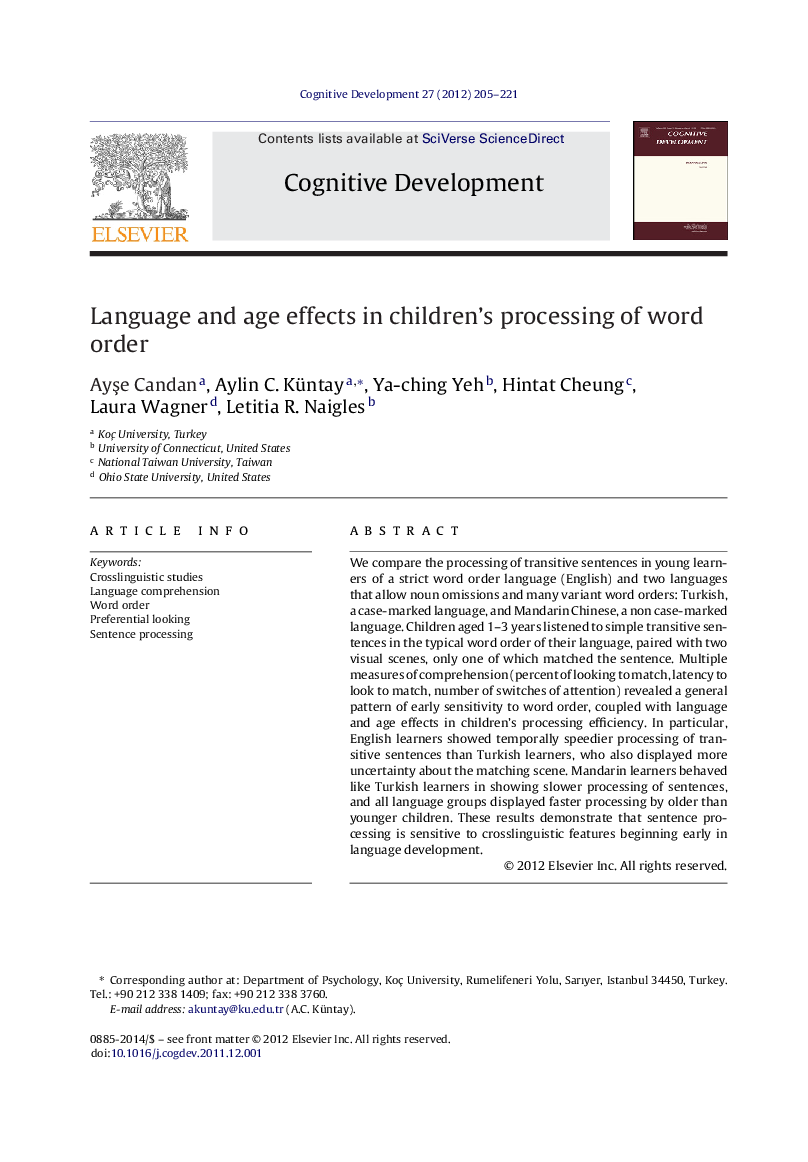| Article ID | Journal | Published Year | Pages | File Type |
|---|---|---|---|---|
| 916561 | Cognitive Development | 2012 | 17 Pages |
We compare the processing of transitive sentences in young learners of a strict word order language (English) and two languages that allow noun omissions and many variant word orders: Turkish, a case-marked language, and Mandarin Chinese, a non case-marked language. Children aged 1–3 years listened to simple transitive sentences in the typical word order of their language, paired with two visual scenes, only one of which matched the sentence. Multiple measures of comprehension (percent of looking to match, latency to look to match, number of switches of attention) revealed a general pattern of early sensitivity to word order, coupled with language and age effects in children's processing efficiency. In particular, English learners showed temporally speedier processing of transitive sentences than Turkish learners, who also displayed more uncertainty about the matching scene. Mandarin learners behaved like Turkish learners in showing slower processing of sentences, and all language groups displayed faster processing by older than younger children. These results demonstrate that sentence processing is sensitive to crosslinguistic features beginning early in language development.
